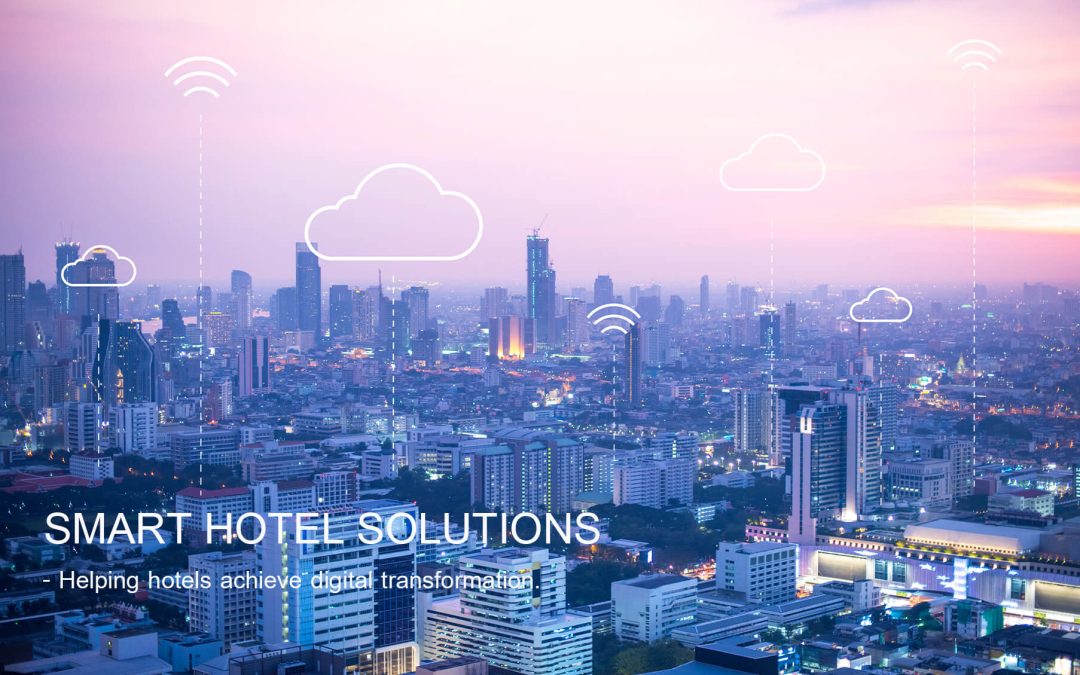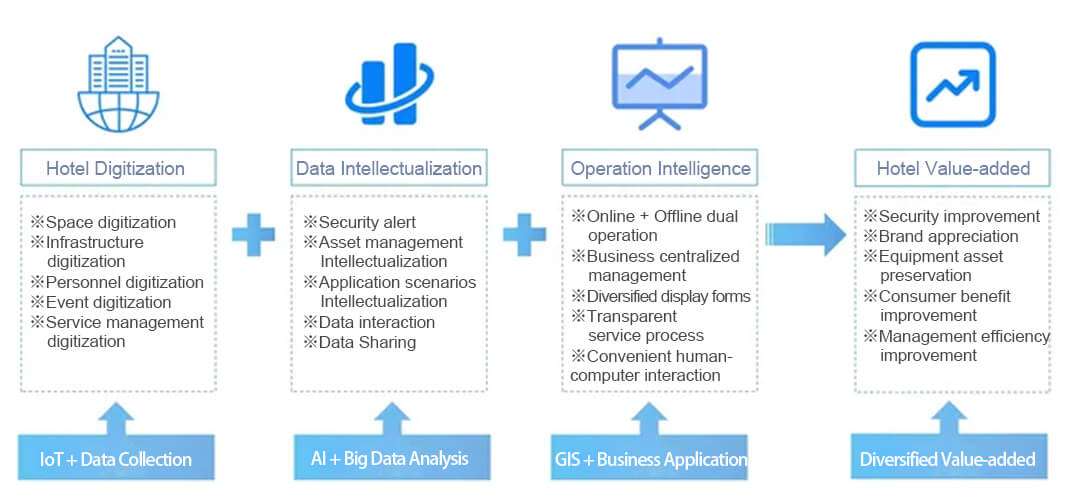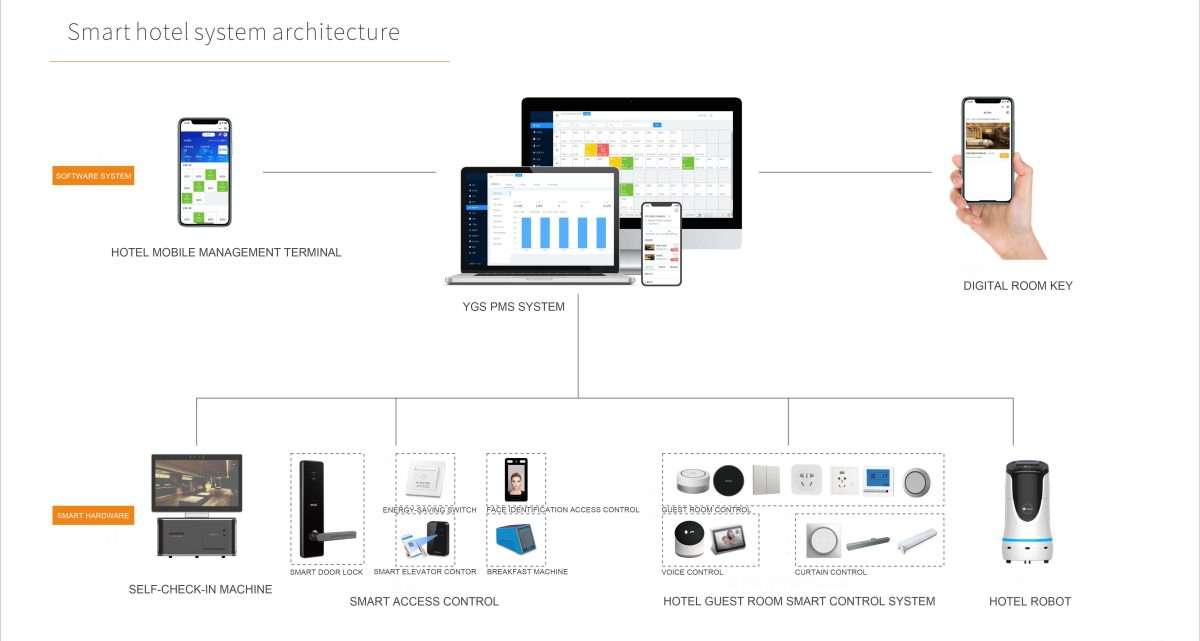In the competitive world of hospitality, convenience is a key factor in determining the success of a hotel. With the emergence of digital keys for hotels, hotels can now offer their guests the ultimate convenience. By allowing guests to access their rooms using their smartphones or other smart devices, digital keys streamline the check-in process and improve the entire guest experience.
The benefits of digital keys extend beyond guest convenience. Hotels that implement digital keys can reduce costs, enhance security, and have a positive impact on the environment. For example, the InterContinental Hotels Group (IHG) saw a 10% reduction in its plastic keycard usage after implementing mobile technology at some of its properties.
This guide will explore the benefits of digital keys for hotels in detail and provide best practices for their implementation and use. We will also examine real-life case studies of hotels that have successfully adopted digital keys and the impact it has had on their business. By the end of this guide, you will have a comprehensive understanding of how digital keys can improve your hotel experience, reduce your operational costs, and help you stay ahead of the competition.
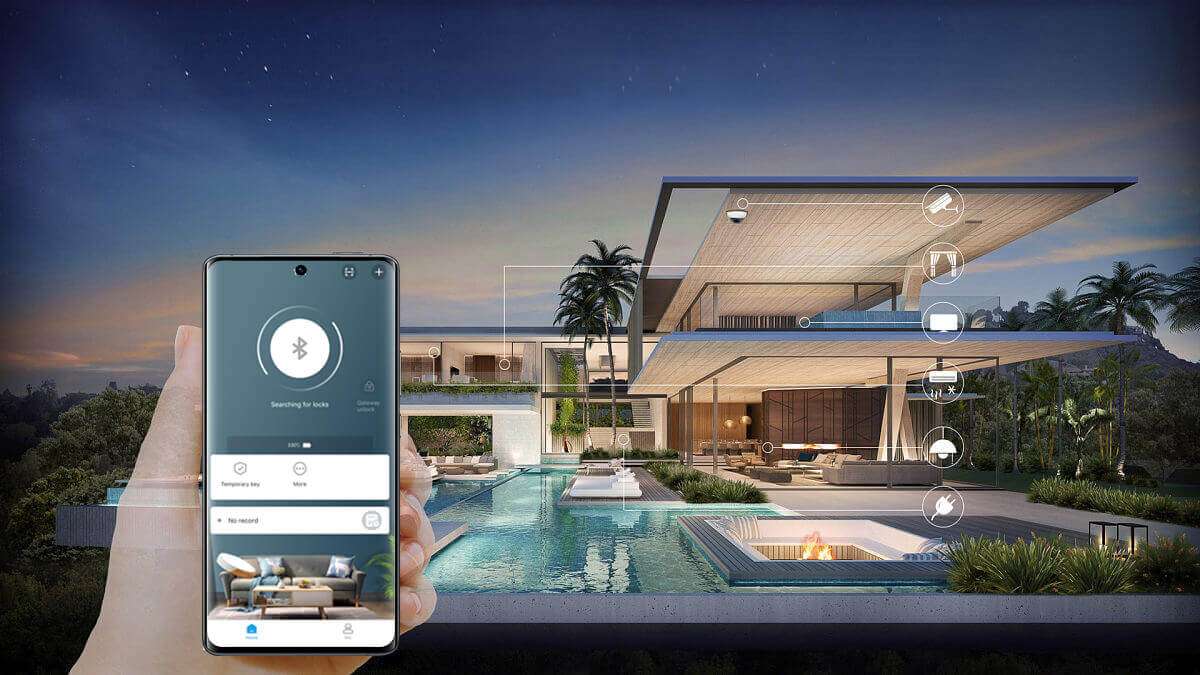
Hotel digital keys are a new technology that allows guests to access hotel rooms using their smartphones or other digital devices, rather than traditional key cards or physical keys.
Essentially, digital keys are a form of mobile access control that uses low-power Bluetooth (BLE) or near-field communication (NFC) technology to communicate with the hotel door lock system.
Digital check-in eliminates the need for hotel guests to carry physical cards and also eliminates the check-in process at the front desk, making the check-in and check-out process more convenient and efficient.
When guests check into the hotel, they receive their digital key via a mobile app or email. They can use the digital key to open their hotel electronic lock, access the hotel elevator, enter designated areas of the hotel, and more.
Additionally, digital keys provide additional layers of security, as they are encrypted and can only be accessed by the guests who receive them.
One platform, multiple channels management, realized the value-add of the hotel. Not only in terms of cost but also in terms of management. The details are shown in the figure:
Hotel Digital Key Solutions
Product Solution 1 – For Hotel Management Personnel
Digital key management permeates all aspects of hotel management, including user management, electromechanical equipment management, public facility management, hotel business management, and mobile office.
User data management: Based on big data technology, hotels can effectively manage guests’ accommodation information, behavioral preferences, and other data to provide more convenient services to guests.
Electromechanical equipment management: This includes heating, ventilation, air conditioning, elevator power distribution, water supply and drainage, and other electromechanical equipment facilities to improve equipment lifespan and reduce energy consumption.
Public facility management: This includes environmental, parking, lighting, security, and other facilities. With identification/location technology, improving the safety and warning capabilities of users’ assets.
Business management & mobile office: This includes meeting reservations, consumption statistics, business transactions, etc., improving the work efficiency of management personnel, and providing data support for analysts.
Product Solution 2 – Targeting Consumers
For the hotel industry, achieving digital management of consumers should be integrated into several stages, including booking stage, check-in stage, staying stage, and check-out stage. Ultimately, improving the brand image and customer experience.
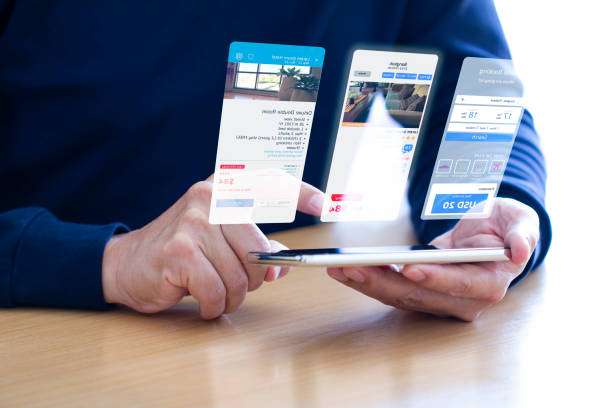
Booking Stage
By promoting through social platforms, user demand can be stimulated. Nowadays, technology-oriented hotels have become the choice for most young people.
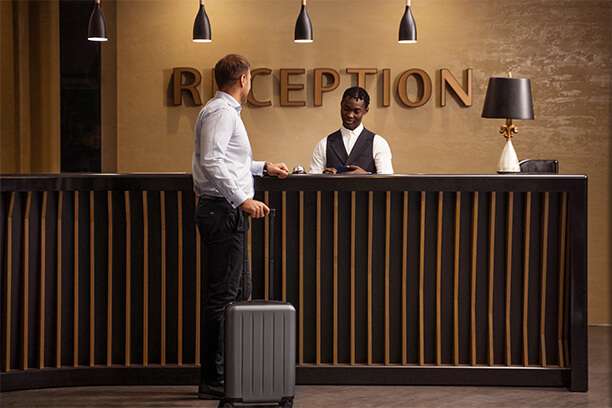
Check-in Stage
After booking a room, hotel services and emotional interaction should be provided by the hotel app. Including parking guidance, real-time viewing of hotel environment data, AR room selection, meeting reservation, and more.

Staying Stage
Customers can experience intelligent applications during check-in and during their stay, including smart hotel lobby, smart homes, smart robot services, intelligent voice services, property management systems, and more.

Check-out Stage
After checking out, customers should be provided with care and precise content marketing services, mainly through mobile apps/messages push.
Features of digital keys
Mobile Accessibility
Hotel mobile keys allow guests to access their rooms without a key card. Specifically, guests can access their rooms and other hotel doors for which they are authorized through their smartphones, for which they are authorized through their smartphones, using Bluetooth® low-energy technology.
These access permissions may be managed in real-time by hotel staff. YGS “local + Cloud” dual server network hotel lock system – an ideal solution to meet modern hotel industry requirements.
Contactless Access
Guests can use their digital keys without having to physically touch a key card or key fob, reducing the risk of spreading germs.
Design with multiple modern smart technologies, hotel smart locks allows multiple unlocking ways, including smart card unlock, mobile devices unlock, biotech unlock, and password unlock.
Secure Encryption
Digital keys are encrypted to protect the guest’s privacy and prevent unauthorized access to their room. Digital keys use encryption algorithms, like AES, RSA, and ECC, to ensure that only authorized parties access sensitive data.
Encryption also preserves data integrity and prevents unauthorized alterations during transmission. Secure encryption ensures data security, prevents security breaches, and ensures your hotel and guests’ security.
Customization
Hotel digital keys can be customized to meet the needs of each individual guest, such as granting access to specific areas of the hotel. You can program the access rights if needed.
For example, you can make an access code for your guest room cleaners, allowing them to access any room that needs to be cleaned. In this way, hotel management will be more effective.
Remote Access
Digital keys offer secure and convenient access management to hotel rooms and other areas. Staff remotely grant and revoke access, enhancing security.
This means guests can access their rooms with their mobile devices without a physical key, and access to other areas like the gym or pool is also possible without a physical key or staff member.
Digital keys also benefit hotel staff by simplifying access management, streamlining operations, and reducing the risk of security breaches from lost or stolen physical keys
Integration
Hotel digital keys can be integrated with other hotel systems, such as housekeeping and maintenance, and access control systems. This integration improves guest service and streamlines operations by providing a more comprehensive solution.
Data Analytics
Digital keys can analyze user behavior to help organizations optimize their operations. The generated data can be used to identify which rooms or resources are most accessed and at what times, enabling efficient cleaning schedules. It can also track user movement for security purposes and personalization.
For example, hotels can offer personalized recommendations based on frequently used amenities. This feature enables organizations to gain valuable insights, enhance security, and provide a personalized hospitality experience.
Types of Digital Keys for Hotels
Smartphone Keys
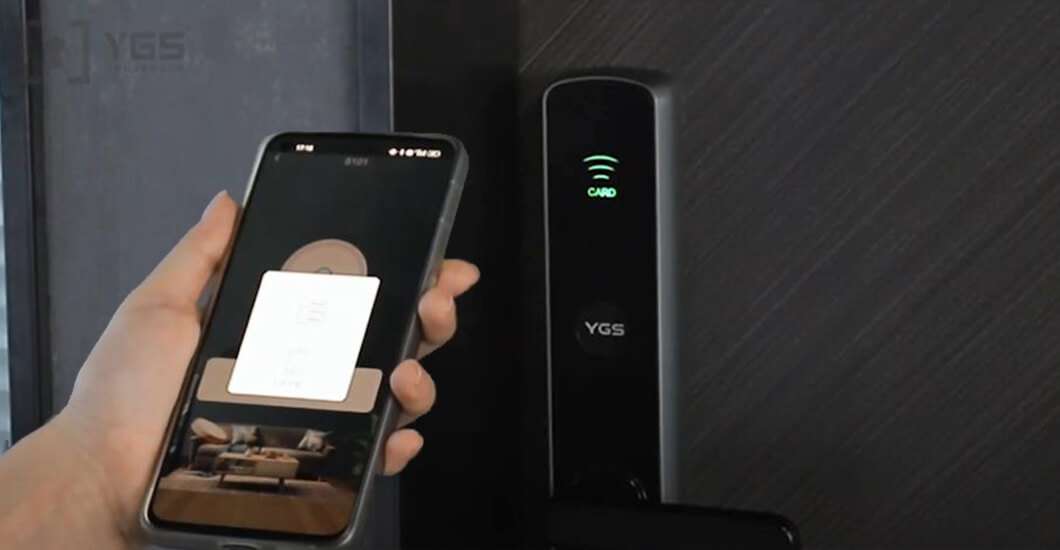
Hotel smartphone keys are accessed through a smart phone app, and use a combination of Bluetooth and near-field communication (NFC) technology to unlock the door.
How do they work? After guests book a room through the hotel’s website or mobile phone APP, they will receive the booking confirmation email or accommodation detail messages, and guests can use the text messages to guide them into the hotel.
With smartphone keys, hotel guests can also activate the hotel elevators, access their hotel rooms, gain their room power, and more.
The mobile phone key creates a unique access code for different guests, and this code can be changed or deleted by the hotel manager at any time. In general, the mobile phone key simplifies the check-in process of the hotel, reduces the management burden of the hotel, and effectively improves the security of the hotel.
RFID Cards
RFID cards are small plastic key cards with an embedded chip and antenna that use radio-frequency identification technology to communicate with the door locks and unlock the door.
They come in various form factors and frequencies, and brought great convenience to many industries, such as hospitality, tourism, transportation, healthcare, retail, and logistics. RFID cards offer convenience, efficiency, and security, but also raise concerns about privacy and security.
Magnetic Stripe Cards
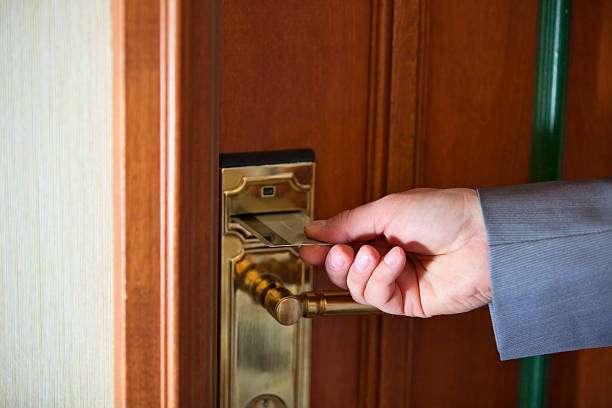
Magnetic stripe cards have a magnetic stripe on the back that is swiped through a card reader to unlock the door. Magnetic stripe cards are inexpensive and widely used due to their simplicity and compatibility with existing infrastructure.
However, they are considered less secure compared to newer technologies like chip-based cards, as the data on the magnetic stripe can be easily copied or manipulated. As a result, magnetic stripe cards are gradually being phased out in some industries in favor of more secure alternatives.
Smart Cards
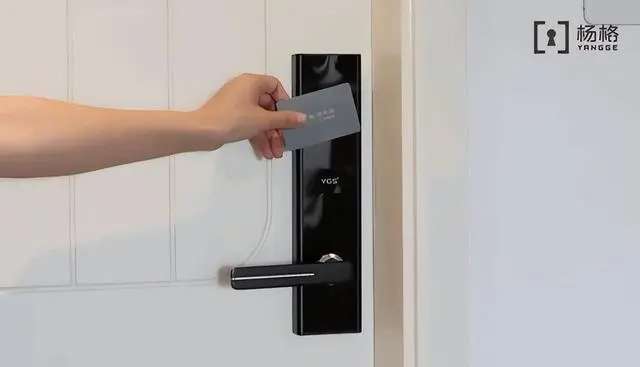
Smart cards have an embedded microchip that communicates with the hotel’s door locks to grant access. It can be contact or contactless, and offers enhanced security and data processing capabilities. Smart cards are widely used in various industries, but may require specialized infrastructure.
Biometric keys
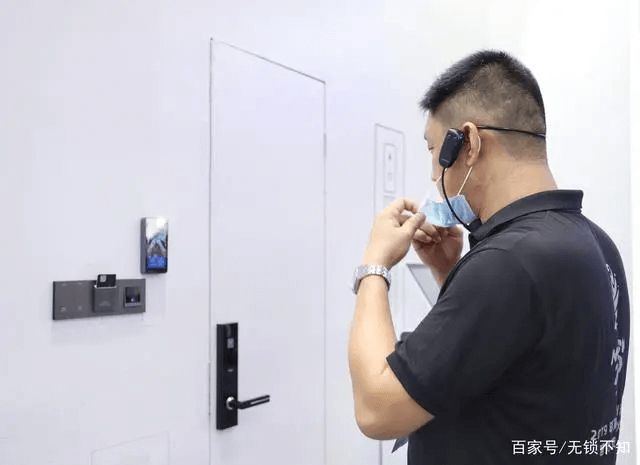
Biometric keys are one of the most popular new-type unlocking ways, there including fingerprint unlock, iris unlock, facial recognition unlock, and more.
Biometrics are unique physiological or behavioral characteristics of an individual, and biometric keys leverage these unique traits to provide secure and convenient access to systems, devices, or facilities.
Biometric keys offer more difficult-to-decipher and more secure access to identification technology, but it is more expensive.
Notable Advantages of Hotel Digital Hotel Keys
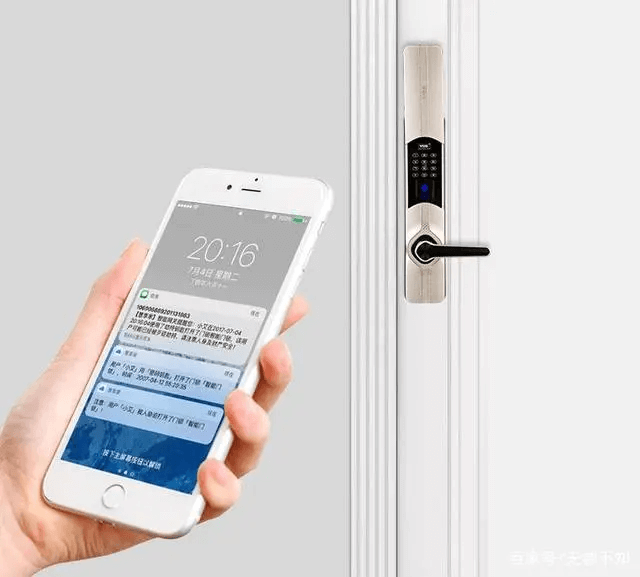
Key integration: Most people have multiple keys that are used in different scenarios such as hotel rooms, gates, cars, etc. and the number of keys keeps increasing. With digital keys, you only need one smartphone to replace all keys. And you can use your keys at any time, relieving your worry.
Mobile key & Keyless entry: Losing physical keys is common, and if it’s a traditional mechanical lock, you may have to replace the entire lock. Now, digital keys eliminate many unnecessary troubles for you. Keyless entry is available, you no longer have to worry about losing your keys. You can use your phone to access everything.
Even if you lose your phone, the access control system can mark your keys as lost, making them unusable to others and directly reissue digital keys to your new phone.
Key/access sharing: Users can temporarily send digital keys to others, and when they no longer need them, the access code can be easily deleted. Compared with borrowing and returning physical keys, it is much easier to temporarily give keys/access to those who need them and revoke them when the demand ends.
Updateable access rights: The access rights of digital keys can be transferred or updated. For example, in the hospitality industry, hotel managers can send updated digital keys to new users and cancel the previous customers’ access rights. Compared with physical access cards, this process of sending digital keys can save time and money for operators and guests.
Optimizing hotel operations: In terms of operational and service efficiency, IoT locks can reduce the workload for hotel front desk staff, and reduce the probability of human error. In addition, door opening records, lock status, room power consumption, and more data can be checked through the system.
And combined with PMS room status check-in information to achieve efficient management of hotel rooms. This makes hotel data more complete, control easier, saves labor, and improves efficiency.
The Downside of Hotel Digital Keys
Digital keys, also known as electronic keys, are becoming increasingly popular as a convenient and secure way to remote control access to hotels, homes, offices, and other spaces. While digital keys offer many advantages over traditional keys, such as the ability to remotely grant and revoke access and to track who has accessed a space and when, they also have some downsides. Here are a few:
Vulnerability to hacking: Digital keys can be vulnerable to hacking, particularly if they are not properly secured. If a hacker gains access to the system that controls the digital keys, they could potentially grant themselves or others unauthorized access to a space.
Reliance on technology: Digital keys require a reliable internet connection and power source to function properly. If there is a power outage or internet outage, it may not be possible to access the space even with a valid digital key.
Cost: Digital keys can be more expensive than traditional keys, particularly if the system requires specialized hardware or software to function.
Compatibility issues: Different types of digital keys may not be compatible with each other, meaning that someone with a digital key from one system may not be able to access a space controlled by a different system.
User error: Like any technology, digital keys can be susceptible to user error. For example, someone may accidentally delete their digital key or forget to charge their device, making it impossible to access the space.
Privacy concerns: Digital key systems often collect and store data about users, including when and where they access a space. This data could potentially be accessed by third parties, raising privacy concerns.
Lack of physical backup: Unlike traditional keys, which can be duplicated or replaced relatively easily, digital keys may not have a physical backup. If a user loses their digital key or it is otherwise compromised, they may not be able to access the space.
Which types of hotels are suitable for digital keys?

Many modern hotels are adopting digital key technology to provide guests with a more seamless and convenient check-in and room access experience. Generally, hotels that offer digital keys fall into two categories:
Large hotel chains: Many large hotel chains have adopted digital key technology across their properties. Examples of larger hospitality brands include Marriott, Hilton, and Accor.
Boutique and luxury hotels: Some boutique and luxury hotels have also adopted digital key technology as a way to enhance the guest satisfaction.
It’s worth noting that the availability of digital keys may vary depending on the specific hotel property within a chain or group. It’s always a good idea to check with the hotel ahead of time to see if they offer digital room keys and what steps you need to take to access them.
Smartphone “keys” are really secure, energy conservation?
Smartphone “keys” refer to the use of smartphones as digital keys for various purposes, such as unlocking doors and accessing secure areas. These digital keys are typically implemented using a combination of software, encryption, and wireless communication technologies to ensure security and conserve energy.
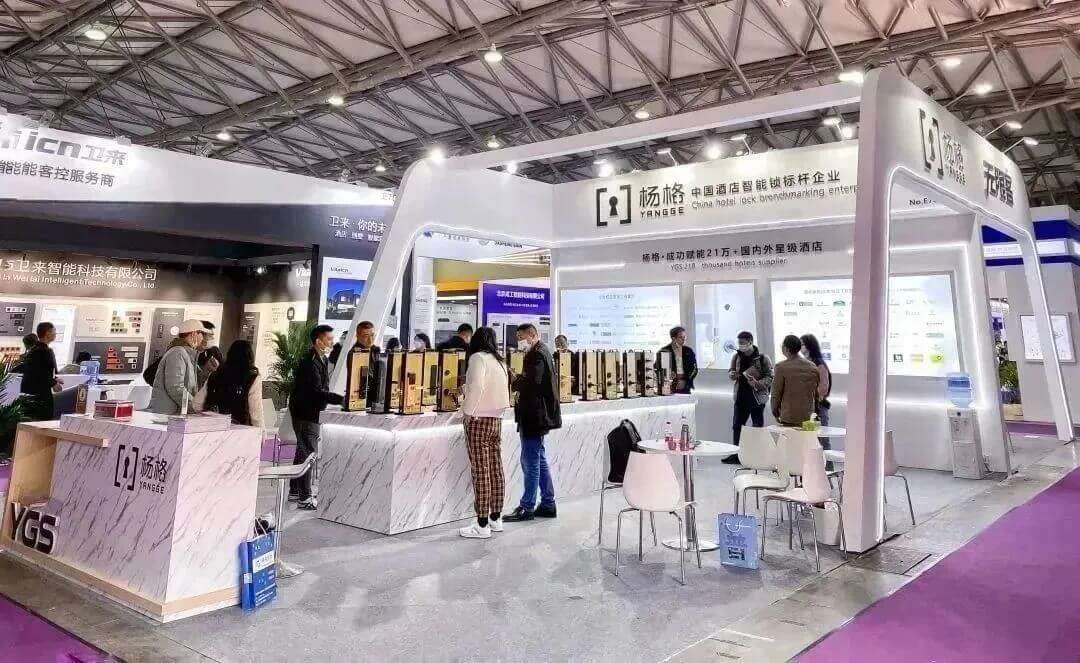
When it comes to security, smartphone keys can be considered relatively secure, depending on the implementation and the security measures in place. For instance, modern smartphones often use advanced encryption algorithms to protect digital keys from unauthorized access.
Additionally, smartphone keys can be further secured with biometric authentication methods, such as fingerprint recognition or facial recognition, which add an additional layer of security.
However, like any digital system, smartphone keys are not immune to potential security vulnerabilities, such as malware attacks or hacking attempts, and it’s important to keep your smartphone’s software and security features up to date to minimize these risks.
In terms of energy conservation, smartphone keys can be designed to be energy-efficient. For example, smartphones can use low-power communication technologies such as Bluetooth Low Energy (BLE) to communicate with other devices, such as door locks, while consuming minimal energy. Additionally, smartphone keys can be designed to enter a low-power mode when not in use to conserve battery life.
However, it’s worth noting that the energy consumption of smartphone keys can vary depending on factors such as the frequency of use, the complexity of the encryption algorithms used, and the efficiency of the wireless communication protocols employed.
Related Blog
With more than 20 years of smart lock experience, YGS could provide a set of hotel door lock management solutions for your hotel business.
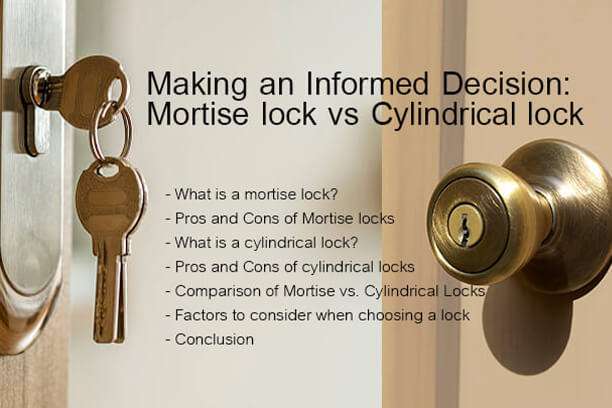
Feb 28, 2023 | Resources
When it comes to choosing a lock for your home or business, there are a lot of factors to consider. Two common types of locks that are often compared are mortise locks and cylindrical locks. While both offer a degree of security, they have significant differences in…
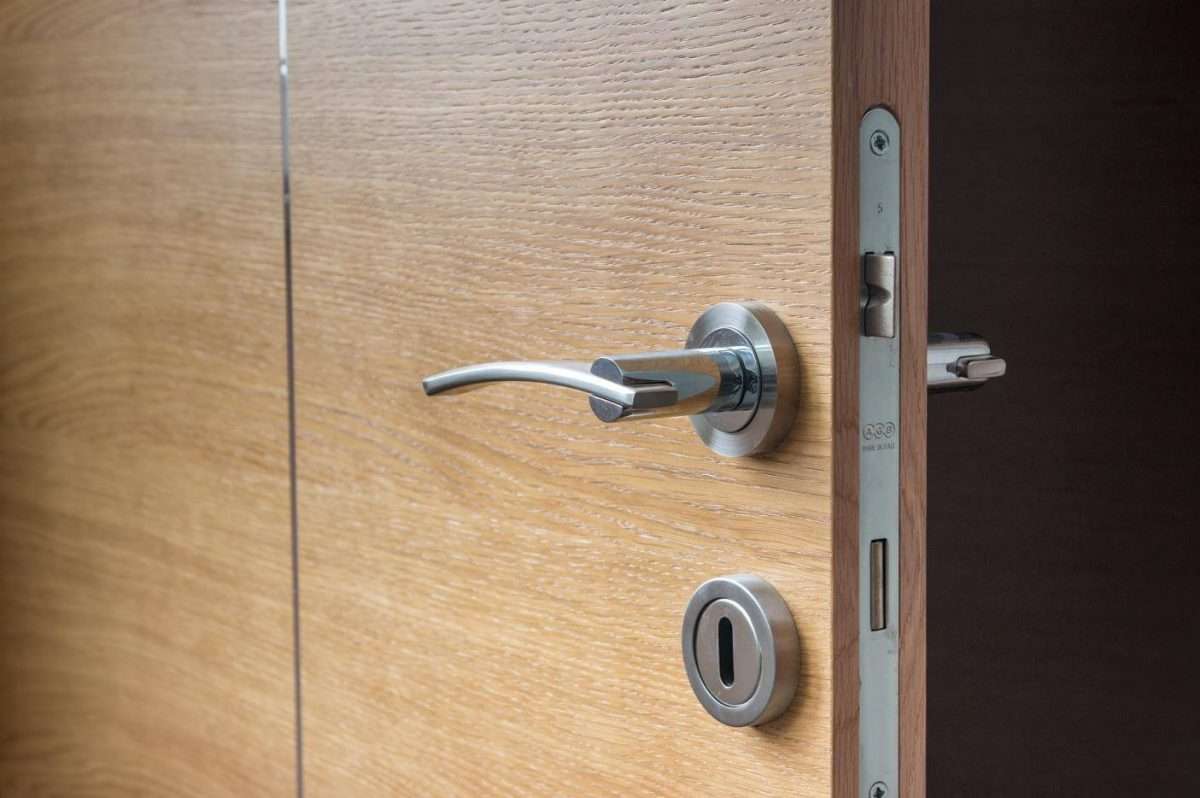
Feb 9, 2023 | Resources
Various types and styles of electronic locks have been developed over the years, and they are widely used in hotels, apartments, schools, office buildings, and other settings. Among them, the hotel is the first place to use electronic locks. The latest technology is…

Mar 3, 2023 | Resources
The hotel industry is dynamic and competitive, with businesses constantly seeking ways to improve efficiency and enhance guest satisfaction. Hotel management software features have become an essential tool in achieving…

Feb 13, 2023 | Resources
With the help of advances in technology, hackers can use an invalid room card to create a “master key” that can open the entire hotel building. As soon as the news came out, everyone was shocked. Many hotels have moved to higher security…
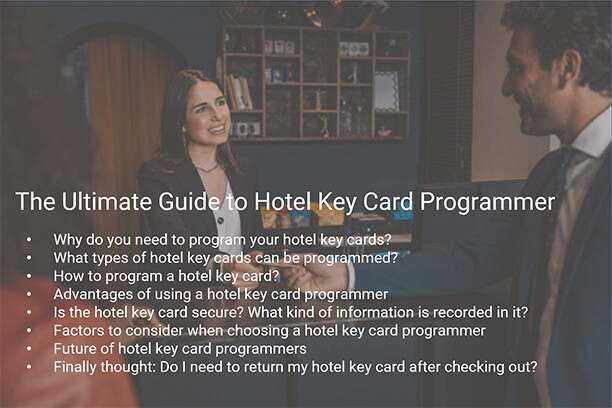
Mar 9, 2023 | Resources
If you are running a hotel, maybe you want to know everything about the hotel key card programmer. Here, we will explore the ins and outs of hotel key card programming and provide you with the information you need to understand…

Feb 10, 2023 | Resources
Hotel maintenance is a very important topic for discussion in the hospitality industry. Hotel maintenance not only affects the entire environment of the hotel but also affects the check-in experience for the guests. Therefore, the hotel should…

